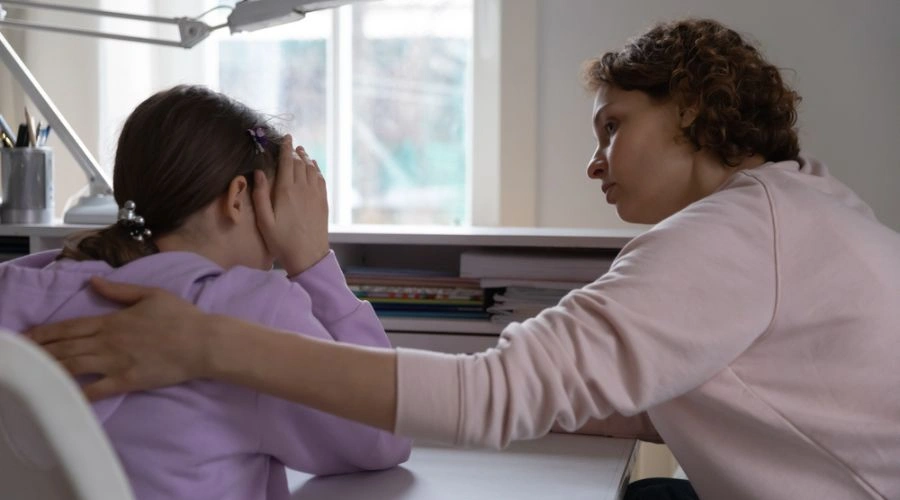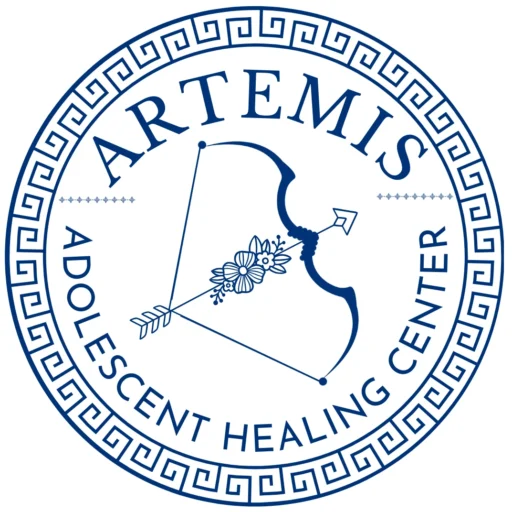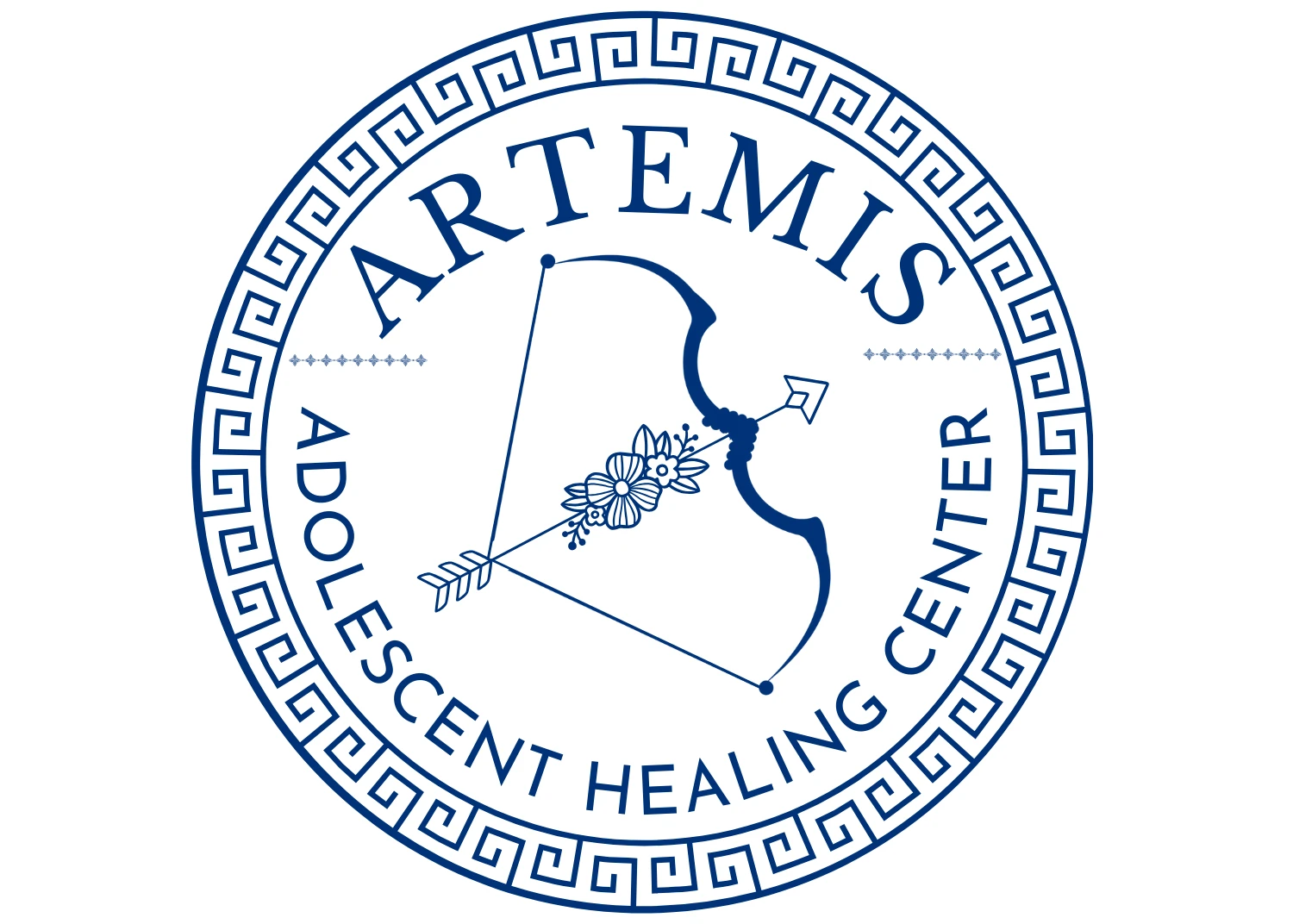Why Preventing Substance Abuse in Teens Matters
It’s natural, as a parent, to hope your child never struggles with substance use. Unfortunately, the harsh reality is that from parties and peer pressure to stress and curiosity, there are more reasons than ever your teen might try drugs or alcohol.
You might think that it could never happen to your family, but the best thing parents can do is be aware of the signs of substance use, keep an open dialogue, and get their teen early intervention when needed. Early interventions for teens can prevent their spiral into addiction and improve adolescent mental health.
This guide from Artemis Adolescent Healing Center will go over these signs and how to handle teenage substance use.
Get Effective Outpatient Treatment at Artemis
How Common is Teenage Substance Use?
Most parents worry about the “party stage” and that once their teen is out without them, they might try alcohol or marijuana. Peer pressure might play a role, but sometimes, kids are looking for an escape. They could also just be experimenting.
You might think that by staying strict, you can stop this from happening. But, teenage substance use is likely more common than you’d think.
A survey from the National Center for Drug Abuse Statistics tells us that just under half of teens have tried illicit drugs (outside of marijuana) at least once, 62% have abused alcohol, and 80% of 12-17 year olds surveyed used marijuana in the last month.
There’s also a risk of vaping, prescription drug abuse, and using over-the-counter medication like cough syrup to get high. Sadly, it’s become an accepted part of adolescent culture.
Signs and Risk Factors
You might notice your teen is moody, keeping their distance, acting secretive, or not keeping up on personal hygiene, but it’s easy to brush this off as your kid “just being a teenager”. But, what do you do if you think something deeper is going on?
Take the time to watch your teen. Be aware of warning signs like sudden weight changes, changes in sleep patterns, declining grades, new friends, or bloodshot eyes. Then, take a proactive approach and talk to your teen, without making them feel accused.
Being aware of the risk factors can also help you decide to have an open-ended conversation with your teen when that time comes. A family history of substance use, youth mental health struggles like depression, anxiety, mood disorders, or unresolved trauma, low self-esteem, too much freedom, and feeling alone at school are common risk factors.
Why Early Detection Matters

In the teenage years, your child’s showing more independence and becoming their own person. While experimenting doesn’t mean they’ll become addicted, when repeated patterns of use or mental illness play a role, there’s a greater risk of addiction.
Early intervention can change the path they are on, especially since the adolescent brain is still developing until your teen enters their twenties. This means the decisions they make now matter. They are more likely to have permanent cognitive changes from repeated substance use.
On the opposite end of things, it also means negative habits aren’t cemented yet. With early intervention and a supportive environment, young people have an easier time building new, better habits and making positive change.
Tips for Talking to Your Teen About Substance Use
You might feel worried, angry, or anxious once you accept your teen might be using drugs or alcohol. Even though you know it’s important to talk to your teen, you may not feel prepared.
This conversation matters, and you need to provide a safe environment for your teen to share. If you have questions or need help navigating this conversation, reach out to Artemis for more support and to learn about our substance abuse and mental health services.
Stay Composed
Don’t let your feelings overwhelm you when it’s time to talk to your teen. If you do get upset, take a step back and revisit the conversation later. You’ll want to keep things open-ended. Remind your teen that, above all, you worry and want them to be safe. You don’t want to punish them.
Listen More Than You Talk
The last thing you want to do is make your teen feel like they are being interrogated. It’s okay to talk about what you’ve noticed or ask if they are struggling. Then, let your teen talk. Don’t interrupt or jump to conclusions, and listen without judgment.
Stay Connected
The relationship you have with your teen plays a big role in their lives. It affects how comfortable they are coming to you with their problems and how honest they’ll be about substance use. When teens feel more supported, they also might be less likely to turn down that path. Share car rides, have family dinners, or just do a casual check-in, letting them know in subtle ways that they don’t have to deal with the teenage years alone.
What to Do When You Suspect Substance Use

Don’t ignore your gut feelings if you’re worried about your teen. Changes like declining physical health and behavioral changes need to be addressed, but before reacting, gather information. Be gentle when you bring up your concerns and don’t make your teen feel like they are being accused.
This conversation can go a few ways. Your teen might open up about substance use, deny that anything’s happening, or explain the symptoms in another way. Sometimes, not caring for themselves and moodiness come from underlying mental health struggles, rather than drug or alcohol use.
Once you know what is going on, it’s time to decide if they’d benefit from professional help. A screening tool can be used to determine if early intervention would be beneficial. By helping your teen before the spiral, you stop them from making decisions that impact their future.
Get Accredited Treatment Programs at Artemis
The Importance of Timely Intervention
Take time to observe your teen and gather yourself, but don’t put off talking to your teen for too long. Adolescent youth have brains that are still developing, making them especially susceptible to taking risks and forming habits. Getting them the help can prevent social issues, problems at school, and health risks.
When to Consider Early Intervention Programs
If your teen experiments with drugs or alcohol, is honest, and doesn’t show repeated patterns, you may wonder if early intervention is necessary. Your teen may not need rehab, but it’s still worth addressing. Sometimes, what looks like innocent experimentation is a sign your teen is looking for an escape. They could be dealing with stress or an underlying mental health problem that makes it hard to say “no” to substances.
Getting help doesn’t mean you are labeling your teen as an addict. Rather, it means you care enough to stop them from becoming one. Your teen gets the chance to learn healthy coping skills and how to recognize triggers like stress. They’ll be better able to manage stress and emotional struggles, improve conflict resolution, and address behavioral issues.
Professional Help That Meets Your Teen Where They Are

Each teen’s journey to healing from substance abuse is different. Sometimes, school counselors, early intervention programs, and access to mental health care are enough to help your teen overcome their struggles.
Other times, an inpatient or outpatient rehab is the best choice for at-risk behaviors. A rehab program can also benefit teens struggling with mental health, and our offerings provide evidence-based approaches that give guidance and help your child develop healthy coping mechanisms.
Considering Treatment Options
Your teen doesn’t have to be exhibiting severe self-destructive behaviors to consider getting treatment. Don’t wait until things get worse. There is a wide range of early intervention services to consider, even outside of rehab programs.
The steps that families take at home can also play a big role in enabling or preventing future drug and alcohol use.
Inpatient vs Outpatient Intervention Programs
At Artemis, your teen’s recovery starts with an assessment where we’ll ask questions about your teen’s struggles, drug and alcohol habits, and family history. We use this information to determine exactly how much support is needed, from residential rehab to outpatient programs like partial hospitalization or intensive outpatient.
Residential rehab is a great choice to help if your child is dealing with dual diagnosis or has become dependent on drugs or alcohol. They’ll have help navigating withdrawal while learning coping mechanisms, social skills, and how to manage life.
Outpatient programs work well when you get your teen timely support. They’ll still be able to attend school and sleep at home while visiting our facility for individual and group therapy sessions.
Youth Mental Health Education for Families

Many mental health conditions begin in adolescence, but it can be hard for parents to differentiate between mental illness and the normal parts of being a teenager. When families are involved in therapy, it offers your teen more understanding and support that starts at home.
At Artemis, we try to involve families in our early intervention and youth mental health programs whenever possible. You’ll start to understand your child’s patterns, what led them down that road, and how you can help them make better decisions in the future.
Up To 100% of Rehab Costs Covered By Insurance
Find Early Intervention Support for Your Child at Artemis
Even when teenage substance use doesn’t mean addiction, it always deserves parental attention. It might just be experimentation, but it could also tell you more about what your teen is dealing with, whether stress, social problems, or underlying mental health issues.
When you step in sooner, your teen doesn’t have a chance to spiral. Early intervention lets them learn how to manage mental health, handle stress, and build healthy habits.
At Artemis Adolescent Healing Center, we’ll support your teen wherever they may need it. Reach out today to learn more about our family-oriented programs and how to help your teen take the next steps toward healing.






